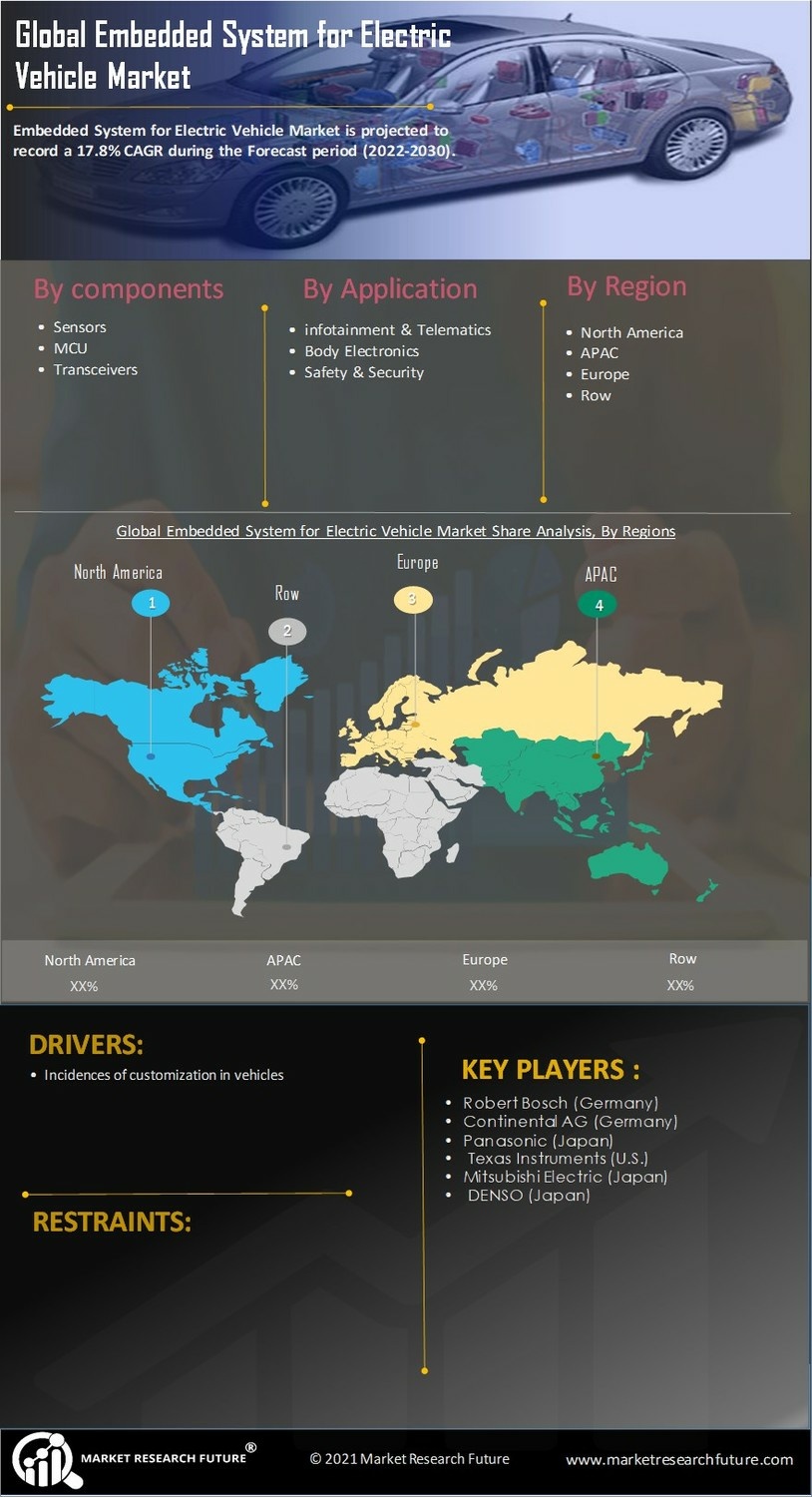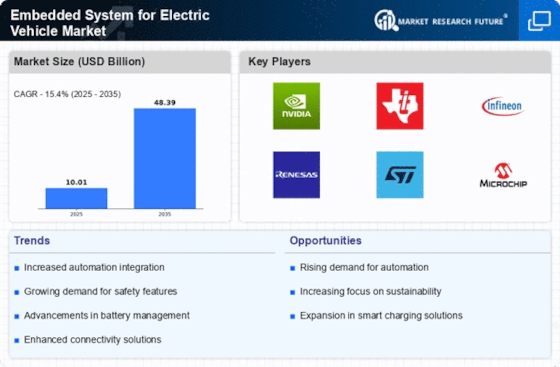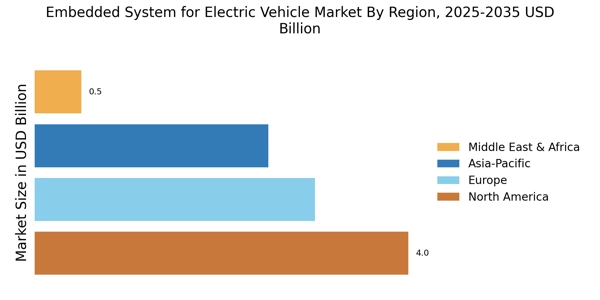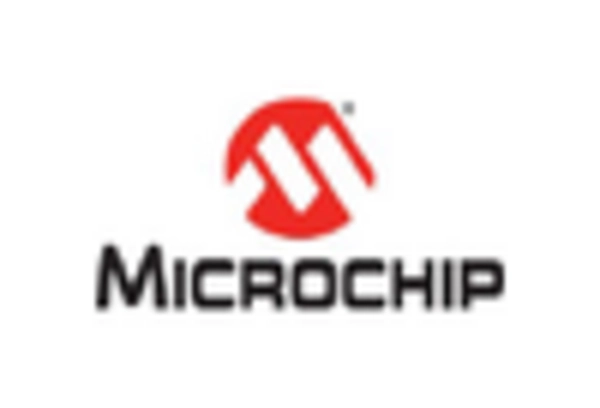Embedded System for Electric Vehicle Market Summary
As per Market Research Future analysis, the Embedded System for Electric Vehicle Market was estimated at 10.01 USD Billion in 2024. The embedded system industry is projected to grow from 11.55 USD Billion in 2025 to 48.39 USD Billion by 2035, exhibiting a compound annual growth rate (CAGR) of 15.4% during the forecast period 2025 - 2035
Key Market Trends & Highlights
The Embedded System for Electric Vehicle Market is poised for substantial growth driven by technological advancements and increasing consumer demand.
- North America remains the largest market for embedded systems in electric vehicles, reflecting a robust demand for advanced automotive technologies.
- The Asia-Pacific region is emerging as the fastest-growing market, propelled by rapid urbanization and increasing electric vehicle adoption.
- Sensors dominate the market as the largest segment, while memory devices are experiencing the fastest growth due to advancements in data processing capabilities.
- Rising demand for electric vehicles and government incentives are key drivers fueling the expansion of embedded systems in the automotive sector.
Market Size & Forecast
| 2024 Market Size | 10.01 (USD Billion) |
| 2035 Market Size | 48.39 (USD Billion) |
| CAGR (2025 - 2035) | 15.4% |
Major Players
NVIDIA (US), Texas Instruments (US), Infineon Technologies (DE), Renesas Electronics (JP), STMicroelectronics (CH), Microchip Technology (US), Analog Devices (US), Bosch (DE), Continental (DE), Denso (JP)


















